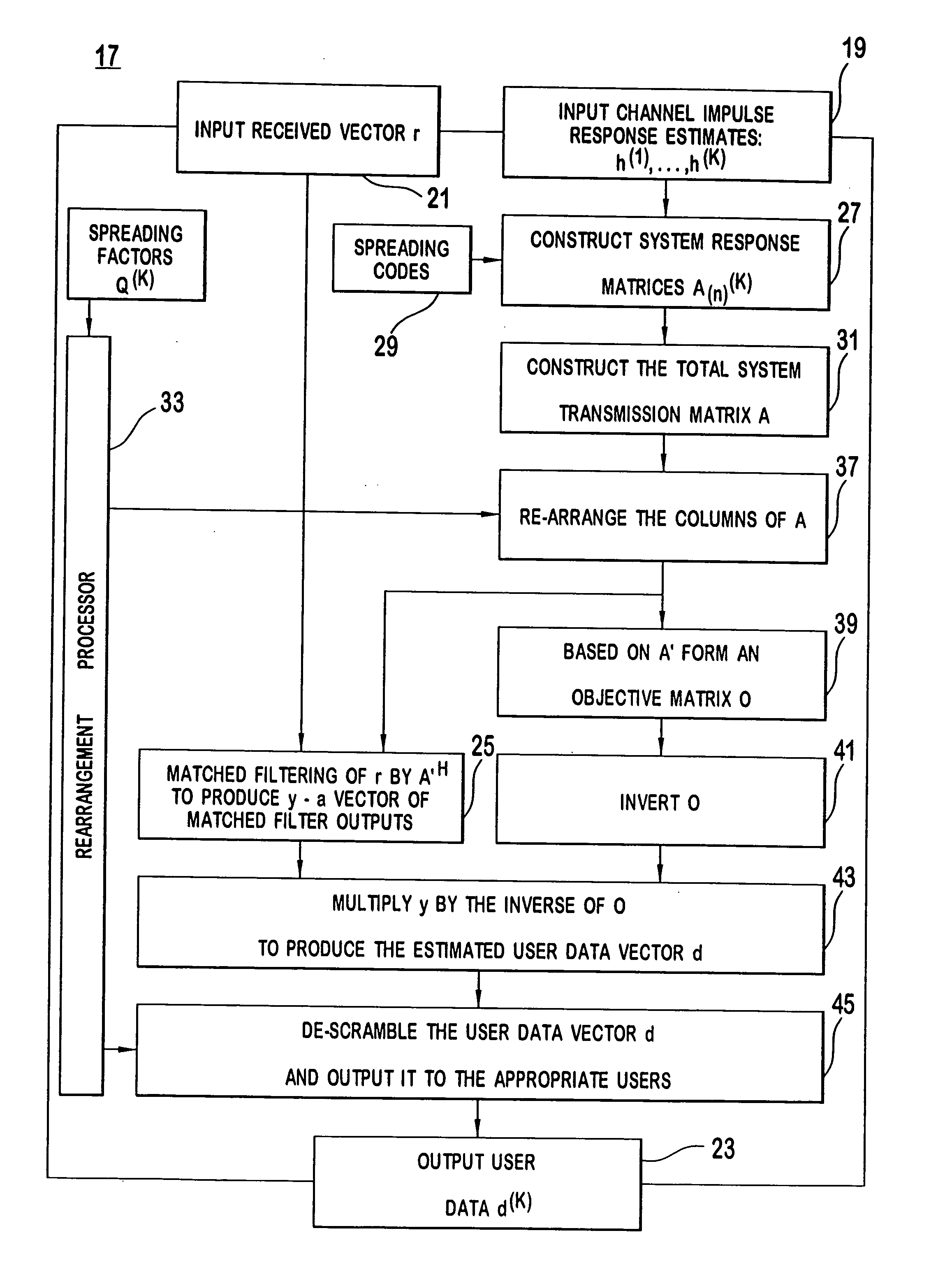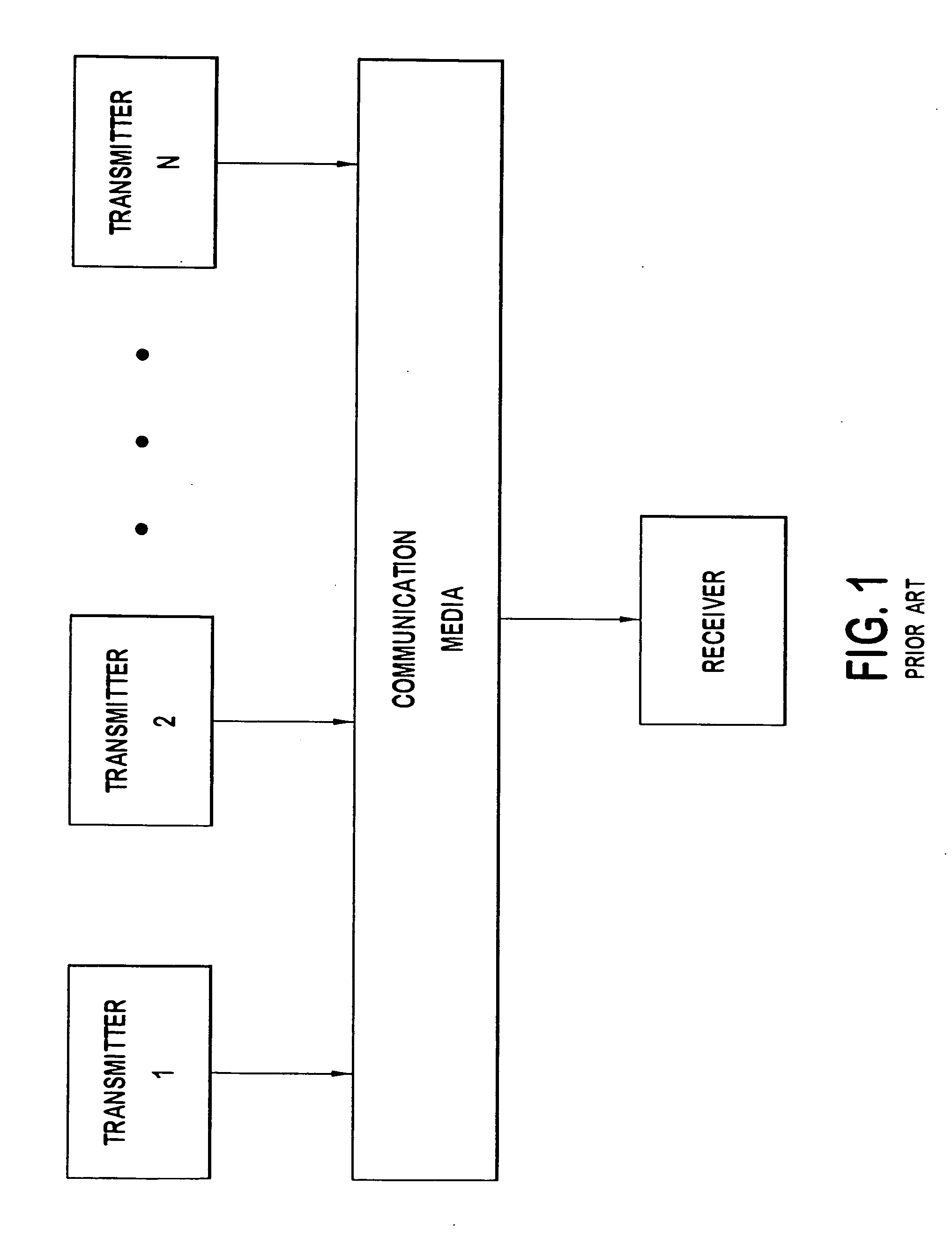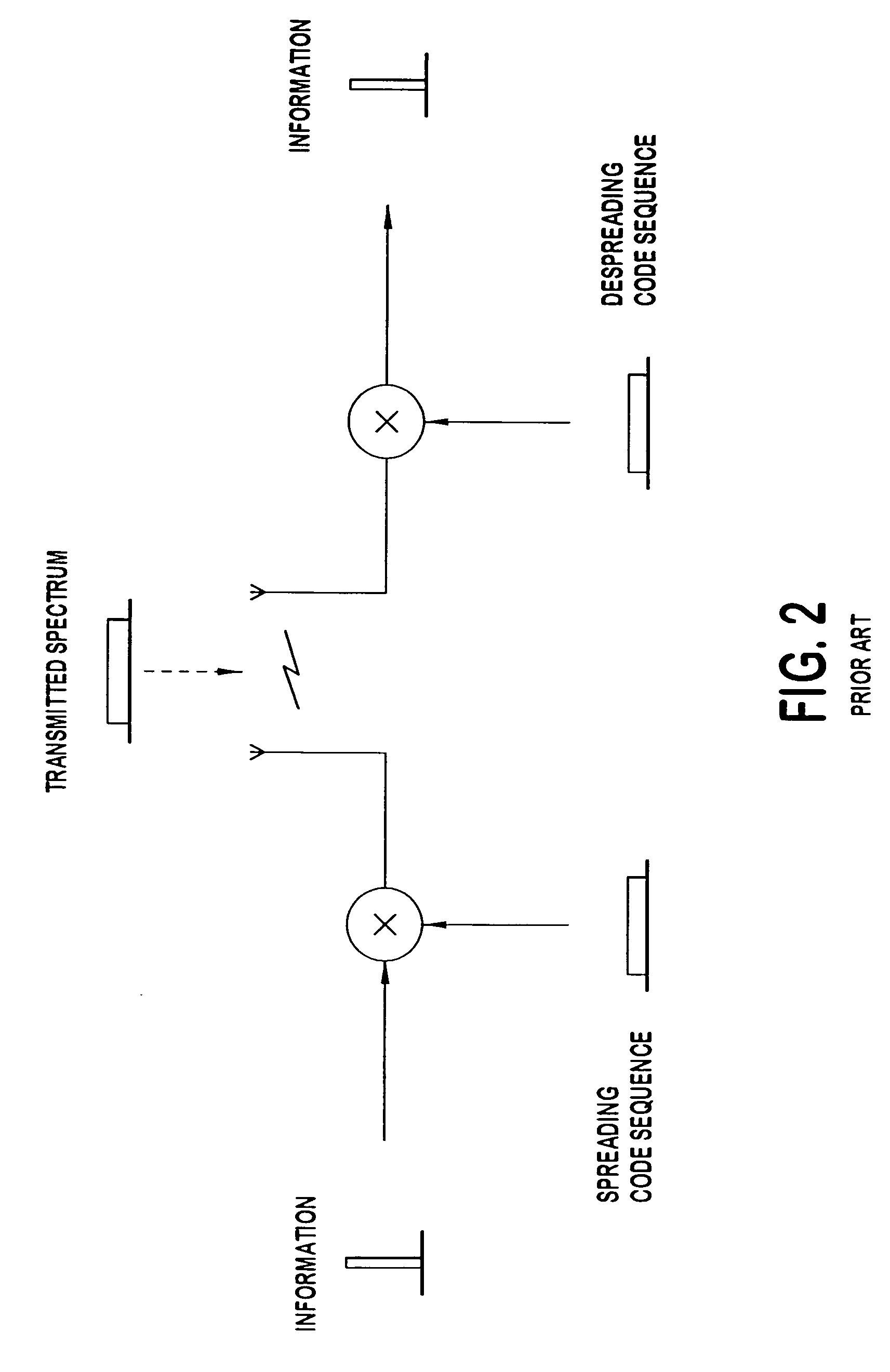Multiuser detector for variable spreading factors
a multi-user detector and variable spreading factor technology, applied in multiplex communication, radio transmission, electrical equipment, etc., can solve the problems of complex inversion of objective matrix o, computationally intensive, and difficult economic implementation of optimal multi-user detectors, so as to reduce computational complexity and minimize numeric operations
- Summary
- Abstract
- Description
- Claims
- Application Information
AI Technical Summary
Benefits of technology
Problems solved by technology
Method used
Image
Examples
Embodiment Construction
)
[0057]The embodiments will be described with reference to the drawing figures where like numerals represent like elements throughout.
[0058]Shown in FIG. 7 is a multiuser detector 17 of the present invention for detecting, after reception, a plurality of users transmitting over a common CDMA channel. The multiuser detector 17 comprises a plurality of processors having collateral memory which perform various vector and matrix operations. Alternate embodiments of the invention include fixed gate arrays and DSPs performing the functions of the various processors. The detector 17 also comprises a first input 19 for inputting individual k subchannel impulse response estimates modeled as vectors h(k) to correct intersymbol interference or ISI caused by a subchannel's own symbols and multiple access interference or MAI caused by symbols from other user's subchannels for all received data signals, a second input 21 for inputting data from all users k transmitted in a discreet block of time ...
PUM
 Login to View More
Login to View More Abstract
Description
Claims
Application Information
 Login to View More
Login to View More - R&D
- Intellectual Property
- Life Sciences
- Materials
- Tech Scout
- Unparalleled Data Quality
- Higher Quality Content
- 60% Fewer Hallucinations
Browse by: Latest US Patents, China's latest patents, Technical Efficacy Thesaurus, Application Domain, Technology Topic, Popular Technical Reports.
© 2025 PatSnap. All rights reserved.Legal|Privacy policy|Modern Slavery Act Transparency Statement|Sitemap|About US| Contact US: help@patsnap.com



